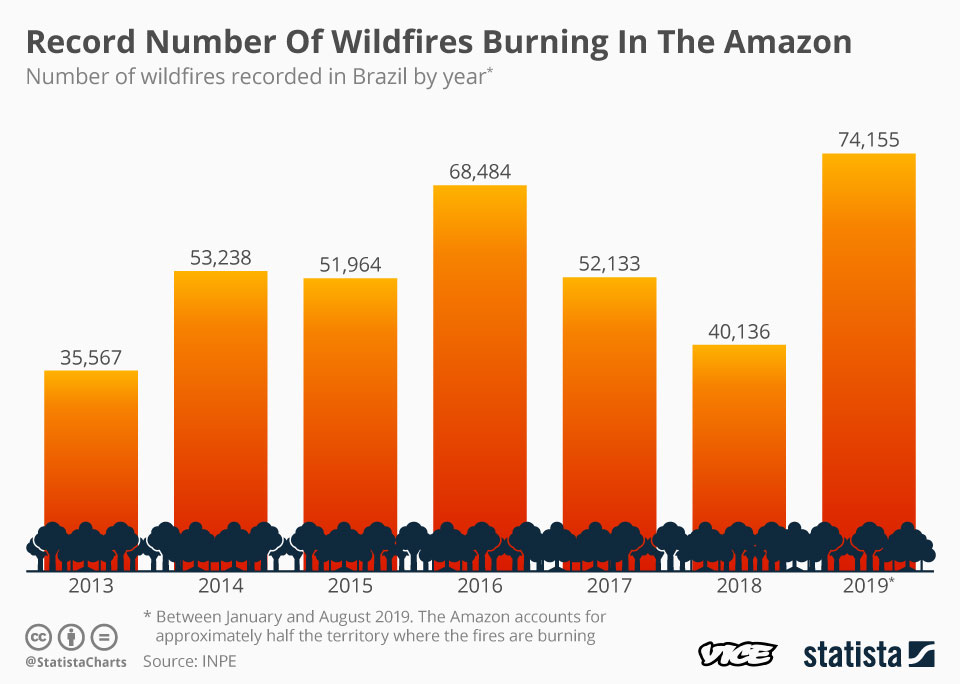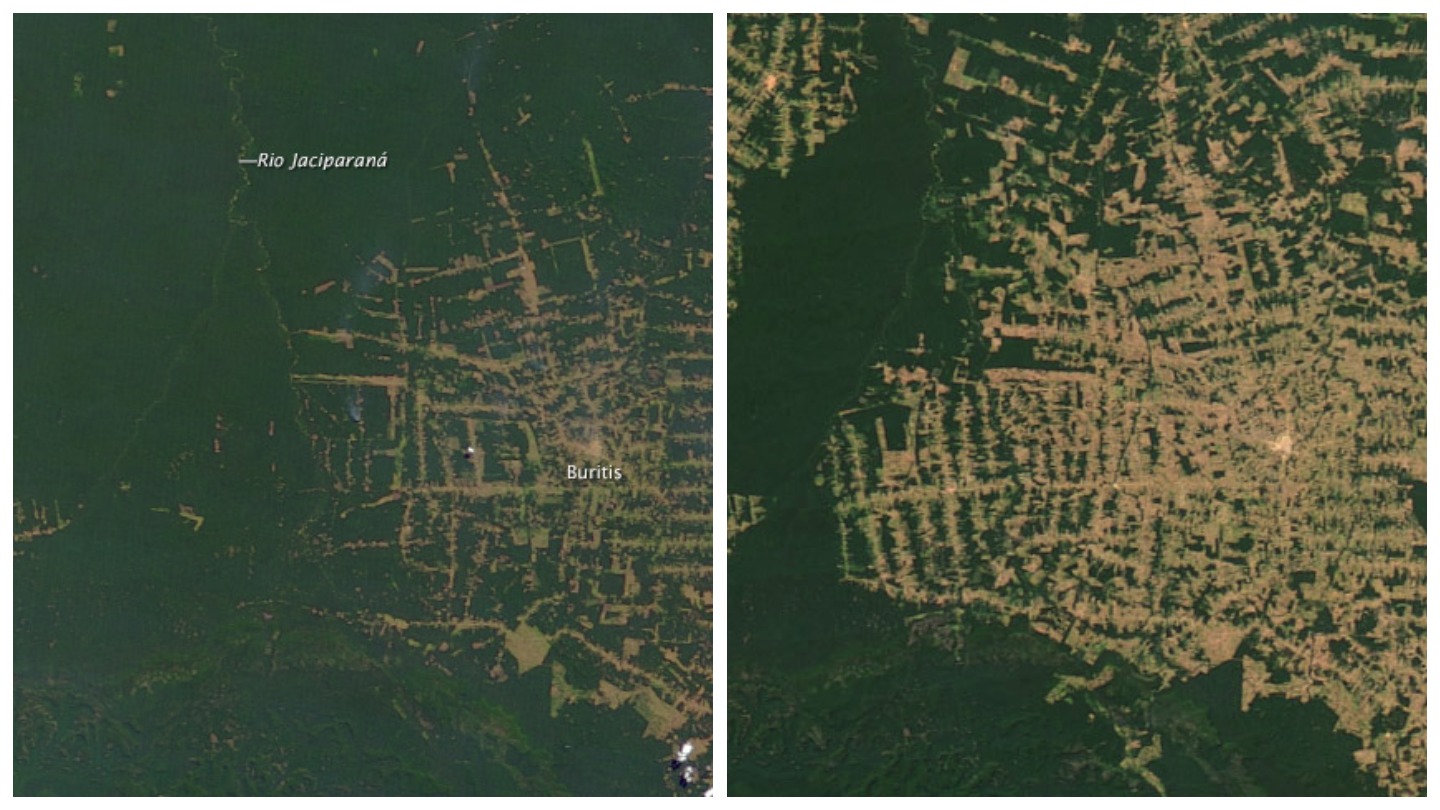The struggle with “Climate Despair” is real. That is anxiety and depression caused by news of environmental degradation. Right now, for example, many have shared feelings of helplessness amid the ongoing forest fires in the Amazon. This disaster has been going on for weeks, and the fires have gotten so bad that the state of Amazonas declared a state of emergency earlier this month.
The problem, however, is not totally out of people’s hands. Studies have shown that the fires aren’t caused by natural occurrences, but by humans–our love for meat, to be exact.
Videos by VICE

The fires are caused by burning fallen trees to make way for cattle ranching, a growing industry in Brazil and the wider region. Data from the Institute of Environmental Research in Amazonia (IPAM) show that the top ten municipalities in Amazonia with the most fire occurrences also had the biggest deforestation rates this year.
The most practical solution people can adopt to help is to reduce–or stop–their meat intake.
Cameron Ellis, Senior Geographer at The Rainforest Foundation told VICE that because cattle require open spaces to feed and grow, ranchers clear vast lands by burning forests. These fires often get out of hand and “escape into surrounding forest, much of which is suffering from drought.” The fires grow and end up consuming areas with trees that have not been cut down.
Although logging (both legal and illegal) and other activities also drive deforestation in the Amazon, animal agriculture is the leading cause by far. The World Bank reported that cattle ranching occupies 80 percent of all converted lands in the Amazon rainforest.

But it doesn’t end there. The animals on these farms need to eat, and the World Wildlife Fund (WWF) also links the rainforest fires to the production of cattle food through soy farming.
Soy is the most important protein in animal feed, with 80 percent of the world’s soybean crop fed to livestock. So while soy may not destroy as much forest as cattle ranching, it is part of the underlying cause by enabling grazing.
Soy has become so lucrative that it doesn’t even have to deforest land on its own, which makes them harder to monitor. Fires are ignited to clear land for cattle ranching, which are eventually taken over by soy plantations. This handover happens because soy has driven up land prices in the region, allowing cattle ranchers to sell their plots to soy developers for larger earnings. With these, they expand their herds into larger plots into newly deforested land elsewhere, making the problem worse.
All this is done to keep up with the growing demand for meat globally, which is caused by population growth and increased affluence in developing countries. This keeps animal farms and soybean plantations locked in a vicious cycle where they depend on each other to grow.
“The livestock and agriculture sectors do not exist in isolation from each other. Rather, they are linked in two primary ways: they act as mutual enablers to access land within the Amazon, and they support each other through integrated value chains,” the WWF said.
It does not help that the current rhetoric of the Brazilian government favours development over conservation, incentivising ranchers to expand their pastures. Up to 80 percent of deforestation in the Amazon is illegal, however.
The Amazon is now one of the biggest cattle ranching regions in the world, and it’s only getting worse. Brazil’s cattle herd grew from 158 million heads in 1996 to 219 million in 2016, becoming the world’s largest beef and poultry exporter.

Last year, Brazil exported 1.6 million tonnes of beef, the highest in history, Reuters reported. The number is expected to grow 1.8 million tonnes by the end of 2019, with China as the main export destination. Other major importers of Brazilian beef are Hong Kong, Egypt, Russia, and the European Union.
Ellis told VICE that less rain is falling now because there are fewer forests to capture it. If the deforestation cycle is kept alive, we might reach a “tipping point where the entire landscape converts from rainforest to savanna,” he said.
One person not eating beef for a year saves approximately 3,432 trees, so you are doing the earth a favour by skipping that burger.




